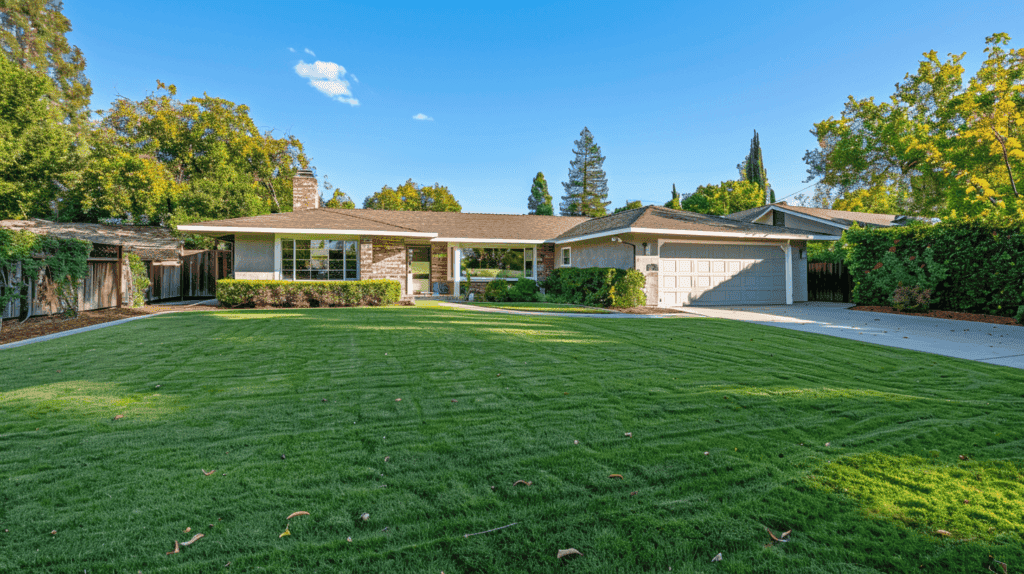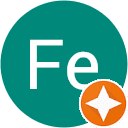As Wendy Landeros, a Mortgage Loan Officer based in the vibrant Bay Area of California, I’m committed to helping you navigate through the myriad of home financing options available to you. These options include traditional mortgages such as fixed-rate and adjustable-rate alternatives, along with government-backed loans like FHA, VA, and USDA loans. Other possibilities like interest-only, balloon, and reverse mortgages might also be suitable solutions, depending on your unique circumstances.
Conventional loans typically require a good credit score and a down payment, while government-backed loans are designed to be more accessible. Your choice will largely depend on factors such as the loan term, rate type, and your financial situation. The price of your prospective home will also play a key role.
Each option carries its own set of advantages and disadvantages. It’s crucial to thoroughly explore all these avenues to determine the best fit for you. I’m here to guide you through this journey, providing expert advice to help you make informed decisions. In the following sections, I will break down these options further, helping you identify the perfect one for you.
I’m ready to work diligently for you to secure the best loan possible. To get started, feel free to click the Contact form button or ring me at 925-234-1912. I’m excited to assist you in your home financing journey.
Key Takeaways
As Wendy Landeros, a dedicated Mortgage Loan Officer based in the beautiful Bay Area of California, I’m here to guide you through various home financing options. We have a variety of options such as Conventional, FHA, VA, USDA, and Jumbo loans, each with its unique features.
Each loan type comes with different down payment requirements, interest rates, and mortgage insurance; these factors can vary significantly. But no worries, helping you navigate these complexities is my job!
For first-time homebuyers, government-backed loans are often a great choice due to their lower down payments and competitive rates. I’m here to help you explore these options and find the best fit for your situation.
Remember, your credit score, income, and financial stability play a crucial role in loan approval and terms. I will assist you in understanding how these factors influence your loan options, and together we can work towards improving them if necessary.
It’s important to carefully evaluate loan terms. Consider the loan duration, interest rates, fees, and closing costs. But you’re not alone in this – I’m ready to work with you every step of the way to ensure you secure the best loan possible.
For more information or a personalized consultation, feel free to click the Contact form button or give me a call at 925-234-1912. I’m looking forward to helping you make your homeownership dreams come true!
Understanding Different Mortgage Types

To fully grasp your home financing options, it’s important to break down and understand the different types of mortgages available to you. You’ll find that mortgage types can be broadly categorized into fixed-rate, adjustable-rate, interest-only, balloon, and reverse mortgages. Each type offers unique benefits, and the best home financing option for you’ll depend on your specific circumstances.
Fixed-rate mortgages are the most common and straightforward type. They include a set interest rate that doesn’t change over the life of the loan, offering stability and predictability. If you’re planning to stay in your home for a long time, this might be your best bet.
Adjustable-rate mortgages (ARMs), on the other hand, have interest rates that can change over the loan’s lifespan. This means your monthly payments could increase or decrease. ARMs could be a viable option if you’re expecting your income to grow in the future or plan to sell before the rate increases.
Interest-only and balloon mortgages typically have lower initial payments but can lead to significant payment increases down the line. While these types might seem attractive initially, they can pose financial risks if you’re not prepared for the payment jump.
Lastly, reverse mortgages are designed for older homeowners. These allow you to convert a portion of your home equity into cash, but they should be approached with caution due to their complex nature.
When considering your home financing options, it’s crucial to discuss these mortgage types with multiple mortgages lenders. They can provide valuable insights and help you navigate the types of home mortgages to find the best fit for your financial situation.
Deep Dive Into Conventional Mortgages

After understanding the broader categories of mortgages, let’s now explore conventional mortgages, a popular choice among home buyers for their flexibility and variety. Conventional mortgages are a type of mortgage loan offered by a wide array of real estate lenders, including banks, credit unions, and online lenders. These home loans aren’t backed by the federal government, which means you’re often required to have a good credit score, steady income, and a sizeable down payment to qualify.
Conventional mortgages are further divided into two main types: conforming and non-conforming loans. Conforming loans meet the underwriting guidelines of Fannie Mae and Freddie Mac, setting a limit on the size of the loan. If you’re a home buyer looking for a larger mortgage loan, you may consider non-conforming loans, also known as jumbo loans, which exceed the limit set by Fannie Mae and Freddie Mac.
One of the standout advantages of conventional mortgages is the flexibility they offer. You have the ability to choose the term length that best fits your financial situation, with options typically ranging from 10 to 30 years. Plus, once you’ve built up 20% equity in your home, you can request to stop paying private mortgage insurance (PMI), potentially saving you hundreds of dollars each year.
While conventional mortgages may require a higher upfront cost, they often prove to be a wise choice for many home buyers due to their variety, flexibility, and potential cost savings over the life of the loan.
Fixed-Rate Mortgages Explained

Delving into the domain of fixed-rate mortgages, it’s important to understand that this type of home loan offers a stable interest rate for the life of the loan, providing you with predictable monthly payments. As a home buyer, this means you’ll never have to worry about fluctuating interest rates affecting your monthly expenses. It’s a favored option for financing a home, especially if you plan to stay in the property for a long time.
In the world of real estate loans, the fixed-rate mortgage stands out for its simplicity and stability. When you secure a fixed-rate mortgage, you and your home lender agree on a specific interest rate that will not change throughout the span of your loan. This rate remains consistent, regardless of market conditions.
To highlight the key advantages and considerations of fixed-rate mortgages, let’s look at the table below:
| Advantages | Considerations |
|---|---|
| Stable monthly payments | If interest rates drop, you could end up paying more |
| Easy to understand | Not ideal if you plan to move in a few years |
| Protection against rising interest rates | Usually higher interest rates than adjustable-rate mortgages |
Unpacking Adjustable-Rate Mortgages

While fixed-rate mortgages offer stability and predictability, you might find the flexibility of adjustable-rate mortgages (ARMs) more appealing if you’re open to a degree of financial unpredictability. ARMs are a type of mortgage financing where the interest rate isn’t fixed but adjusts periodically, often annually, based on a specific index.
When you’re searching for ‘mortgage lenders near me’ or ‘home lender near me’, it’s important to ask about their ARMs offerings. Depending on the term of the loan, the initial interest rate on an ARM can be notably lower than that of a fixed-rate mortgage. This can be particularly attractive to you if you’re not planning on staying in your home for a long period.
However, there’s a flip side. While ARMs can start lower, they can also go higher, and sometimes considerably so, depending on market conditions. This means your monthly payments can increase, sometimes substantially.
For first-time home buyers, understanding the ins and outs of adjustable-rate mortgages can be a bit complex. That’s why it’s vital to partner with the best lenders for first time home buyers who can clearly explain the terms and potential risks of an ARM. They can help you decide if the potential benefits outweigh the risks.
A Look at Government-Backed Loans

Shifting gears, let’s now explore government-backed loans, a popular and accessible home financing option for many prospective homeowners. These loans, often sought after by first-time home buyers or those unable to secure conventional financing, provide an affordable route to homeownership.
If you’re in the Bay Area, home loans backed by the government can be a viable option. Lenders offer these loans with the promise that the federal government will cover them if you default. This guarantee allows the best home lender to offer you more favorable terms, such as lower down payments and competitive interest rates, reducing the financial burden of mortgaging a home.
One such government-backed loan is a non-QM mortgage. Non-QM, short for non-qualifying mortgage, is a type of loan that doesn’t meet the typical standards set by the Consumer Financial Protection Bureau. Yet, it’s backed by the government and can be a good fit for those with unconventional income sources or credit histories.
Another option to contemplate, especially if you’re an older homeowner in California, is a reverse mortgage. A reverse mortgage California allows you to convert part of the equity in your home into cash. Like other government-backed loans, it offers certain protections, such as a requirement that you’ll never owe more than your home’s value.
What Are Jumbo Loans?

In the domain of home financing, you may come across jumbo loans, a type of non-conforming mortgage that exceeds the loan limits set by government-sponsored entities. These loans are one of the many financing options available to home buyers, particularly those looking to purchase high-priced or luxury properties.
Jumbo loans stand out among other loan types due to their size. They’re specifically designed for financing properties that are too expensive for a conventional conforming loan. The limit for these loans is set by the Federal Housing Finance Agency (FHFA), and any mortgage exceeding that limit is considered a jumbo loan.
As a home buyer, you might consider a jumbo loan if you have a high credit score, a low debt-to-income ratio, and a significant down payment. These loans aren’t backed by government entities like Fannie Mae or Freddie Mac, so lenders often require a strong financial profile.
One key aspect of jumbo loans to remember is their interest rates. They usually have higher interest rates compared to conforming loans due to the increased risk associated with lending a larger amount of money. However, if you’re a financially stable buyer looking to finance a luxury home, this may be a viable option for you.
Exploring your mortgage options is an important part of the home buying process. Understanding the ins and outs of different loan types, including jumbo loans, can help you make an informed decision that suits your financial situation and home buying needs.
Conforming Versus Nonconforming Loans

Having explored the specifics of jumbo loans, it’s time you understood the distinction between conforming and nonconforming loans, a fundamental concept in the home financing landscape. This dichotomy, conforming versus nonconforming loans, is important to grasp when seeking a mortgage for your home.
Conforming loans are basically conventional loans that meet specific guidelines set by Federal National Mortgage Association (Fannie Mae) and Federal Home Loan Mortgage Corporation (Freddie Mac). These guidelines include maximum loan limits, credit score requirements, and debt-to-income ratios, among others. A good mortgage lender will guide you through this process.
Nonconforming loans, on the other hand, don’t fit within these prescribed guidelines. They’re typically larger, and are often referred to as jumbo loans. But size isn’t the only factor; a nonconforming loan could also mean one that doesn’t meet documentation, property type, or credit score guidelines. A non qm lender, abbreviated for non-qualified mortgage lender, can offer these types of loans.
Now, you might wonder where the best place to get a mortgage is. For conforming loans, traditional banks and credit unions are great options, as they often offer competitive rates. Nonconforming loans, however, might require you to branch out to alternative lenders, like online banks or private lenders.
Key Considerations When Choosing a Mortgage

When you’re on the hunt for the right mortgage, several critical factors should guide your decision, ensuring you secure a loan that best fits your financial situation and homeownership goals. It could be overwhelming, but don’t fret; here’s a guide to help you navigate.
Start by researching the best online pre-approval mortgage options. It’s a fast, convenient way to compare rates and terms from various lenders. You’re not only looking for the lowest rate; take into account the lender’s reputation, responsiveness, and customer service. Online platforms can also help you find the best place to apply for a mortgage.
Likewise, if you’re a senior homeowner, you may want to consider reverse mortgage lenders in your area. This type of loan allows you to convert part of your home’s equity into cash. However, it’s crucial to thoroughly research and compare different lenders, as rates and terms can vary significantly.
Finding the best way to find a mortgage lender is vital. Recommendations from friends and family, online reviews, and professional financial advisors can be valuable sources of information. Ultimately, you want a lender who understands your needs, communicates clearly, and offers competitive rates and terms.
Decoding Loan Options
Now that you’re equipped with knowledge on how to select a mortgage lender, let’s unravel the various loan options available to home buyers. As you prepare to apply for a mortgage, it’s crucial to understand the types of loans that might be accessible to you.
First, conventional loans, the most common type, are provided by private lenders and aren’t backed by the government. They’re a great choice if you have a strong credit history.
Next, FHA loans, insured by the Federal Housing Administration, are good options for first-time buyers as they require lower down payments and credit scores.
If you’re a veteran, consider a VA loan. Backed by the Department of Veterans Affairs, VA loans offer significant benefits, such as no down payment or mortgage insurance requirements.
For rural or suburban home buyers, USDA loans, guaranteed by the U.S. Department of Agriculture, offer 100% financing and reduced mortgage insurance premiums.
Lastly, jumbo loans are for more expensive homes and exceed conforming loan limits. If you’re looking at pricier properties, you may need to explore the best jumbo reverse mortgage lenders.
When deciding on the best way to obtain a loan for a house, it’s wise to get preapproved. This will give you an idea of how much you can borrow. The best place to get preapproved for a mortgage is typically a credit union or online lender, as they often offer competitive rates and terms.
Evaluating Loan Terms
As you explore the process of home buying, it’s essential to thoroughly assess loan terms to make sure they align with your financial goals and capabilities. When evaluating loan terms, finding the best preapproval mortgage can provide you with a clear understanding of what you can afford, thereby making your house hunting more focused and less stressful.
To start, seek out a ‘lender near me‘ online or in your local area. Partnering with a home mortgage lender that knows your local market can offer invaluable insights and guidance. The mortgage process can be intricate, so having a knowledgeable professional on your side can make all the difference.
While searching for the best loan to buy a house, consider the duration of the loan. This varies typically from 15 to 30 years. A longer-term loan means smaller monthly payments but more interest over the life of the loan. Conversely, a shorter-term loan means larger monthly payments but less interest paid overall.
Another important aspect is the interest type – whether it’s fixed or adjustable. This will greatly impact your monthly payments and the total amount paid over the life of the loan.
Lastly, don’t overlook the fees and closing costs. These can have a significant impact on the overall cost of your loan. Common fees include origination fees, appraisal fees, and title insurance.
Fixed Vs. Adjustable Interest Rates
Understanding the difference between fixed and adjustable interest rates is another key step in the process of choosing the right home loan. This mortgage information is important because it can greatly impact your monthly payments and overall loan cost.
A fixed rate, as the name suggests, remains constant throughout the duration of your loan. This means your monthly payment will stay the same, making it easier to budget. If you’re someone who prefers stability and predictability, a fixed-rate mortgage might be your best option. However, it’s essential to find the best lender for this type of loan as interest rates can vary widely.
On the other hand, an adjustable-rate mortgage (ARM) has an interest rate that can change over time. In the early years of the mortgage, the rate is usually quite low, and then it adjusts periodically. This could be a good fit if you’re looking for lower initial payments or if you plan to sell or refinance your home before the rate increases.
Searching for ‘reverse mortgage in my area’ can give you a sense of what adjustable rates are currently available. Be mindful though that an ARM can be risky if interest rates rise significantly, resulting in higher payments.
Inside the World of Adjustable-Rate Mortgages (ARMs)
Delving into the realm of Adjustable-Rate Mortgages (ARMs), you’ll find that these loans offer potential benefits but also carry unique risks. If you’re thinking, ‘I need a mortgage,’ ARMs might be a suitable choice for you, depending on your financial situation and long-term plans.
ARMs are a type of home loan that allows the interest rate to change over time. The initial interest rate is typically lower than that of a fixed-rate mortgage, making them attractive to certain borrowers. However, this rate can increase or decrease, hence the term ‘adjustable.’
Here are a few key things to take into account:
- Initial lower interest rates: ARMs start with a lower interest rate, which could be beneficial if you need a loan for a house and want to keep your initial payments low.
- Cap on interest rate changes: Most ARMs have caps that limit how much the interest rate can change annually and over the loan’s lifetime. This cap can provide some level of protection against dramatic increases in your mortgage payment.
- The right lender: It’s vital to choose a better lender when you’re contemplating an ARM. The best place for mortgage pre approval is with a lender who can explain the ARM’s terms and help you understand the potential risks and benefits.
In the world of home financing, the number one mortgage lender isn’t necessarily the one with the lowest rates, but the one who offers transparency, guidance, and a loan product that fits your unique needs. Understanding ARMs is a key step in making an informed mortgage decision.
Understanding the 5 / 1 Adjustable Rate Mortgage
Now, let’s explore the specifics of a 5/1 Adjustable Rate Mortgage, a popular choice among a myriad of home financing options that offers its own unique blend of potential advantages and challenges. With a 5/1 ARM, you’ll get a fixed interest rate for the first five years of the loan. This is the ‘5’ in 5/1. The ‘1’ indicates that after this initial period, the interest rate will adjust once per year.
So, what’s the advantage? Well, 5/1 ARMs typically have lower initial interest rates than traditional fixed-rate mortgages. This can result in significant savings during the first five years. It’s an attractive option if you’re planning to sell or refinance your home before the fixed-rate period ends.
However, there’s a potential downside. After the initial five-year period, the rate will adjust based on current market conditions. If interest rates rise, so will your mortgage payment. The amount of the increase can vary, and there’s no way to predict how much it could be. Some ARMs have caps on how much the rate can increase, but there can still be a substantial jump.
Lastly, it’s important to remember that with a 5/1 ARM, your mortgage payment isn’t just about the interest rate. There are other factors, like the loan amount, the term of the loan, and your credit score, that will affect your monthly payment. Understanding the specifics of a 5/1 ARM can help you make a knowledgeable decision about if this type of mortgage is the right fit for you.
The Fine Print of ARMs
When considering an Adjustable Rate Mortgage (ARM), it’s crucial to thoroughly read and comprehend the fine print, as it contains important details about rate caps, adjustment frequency, and potential penalties. The fine print is basically the terms and conditions that govern your mortgage agreement. It’s where you’ll find all the specifics of your ARM, and understanding this section can save you from unpleasant surprises down the road.
Here are three key elements often found in the fine print of ARMs:
- Rate Caps: These limit how much your interest rate can increase over the life of the loan. There can be periodic caps, which limit the rate change for a specific period, and lifetime caps, that restrict the total rate change over the term of the loan.
- Adjustment Frequency: This dictates how often your interest rate will change. It can be annually, semi-annually, or at other intervals specified in your agreement.
- Penalties: These may be applied if you decide to pay off your ARM early. These penalties, also known as prepayment penalties, can be a substantial amount.
Risks of ARMs for Low Credit Scores
Navigating the world of Adjustable Rate Mortgages (ARMs) can become particularly tricky if you have a low credit score, as it potentially exposes you to higher risks. These loans, whose interest rates can fluctuate over time, may seem appealing at first glance due to their initially low-interest rates. However, they can lead to financial instability, especially for those with low credit scores.
The table below outlines the specific risks you may face with ARMs if you’re dealing with a less-than-stellar credit score:
| Risk | Impact |
|---|---|
| Higher Interest Rates | You’re likely to be offered a higher interest rate compared to those with better credit scores. |
| Payment Shock | If interest rates rise significantly, your monthly payments can suddenly skyrocket. |
| Prepayment Penalties | Some ARMs include clauses that penalize you for paying off the loan early. |
| Negative Amortization | If your payments don’t cover the interest, your loan balance could actually increase over time. |
It’s important to understand these risks and consider them alongside your financial situation before opting for an ARM. You may want to improve your credit score first or explore other loan options that could provide more stability.
Conventional, FHA, or Special Programs: Making the Choice
As you weigh the benefits and drawbacks of different home loan options, understanding the distinctions between conventional loans, FHA loans, and Special Program loans can help you make an informed decision that best suits your financial situation.
Conventional loans are offered by private lenders and aren’t insured by the federal government. These loans typically require a higher credit score and larger down payment, but they often have lower interest rates and more flexibility regarding loan terms and conditions.
FHA loans, on the other hand, are insured by the Federal Housing Administration. This means they offer more protection for the lender, which can translate into lower down payments and interest rates for you, even if your credit score isn’t excellent. However, you’ll also be required to pay for mortgage insurance, which can increase your monthly payments.
Special Program loans are designed to assist specific groups of homebuyers, such as veterans or rural residents. These loans often have unique benefits, but they also may come with specific requirements or limitations.
When choosing between these options, consider the following:
- Your credit score: Higher scores will give you more options, particularly for conventional loans.
- Your down payment: If you can afford a larger down payment, you might save money with a conventional loan.
- Your specific circumstances: Special Program loans can be a great option if you meet the criteria.
Introduction to FHA and Special Programs
Diving into the specifics, FHA loans and Special Program loans offer unique advantages that might make them the right choice for your home financing needs. FHA loans, insured by the Federal Housing Administration, are designed to make homeownership more accessible, especially for first-time buyers or those with less than perfect credit. Special Program loans, on the other hand, are typically offered by state or local housing agencies and non-profit organizations. These loans often include benefits such as lower interest rates, down payment assistance, and flexible underwriting guidelines.
To give you a clearer picture, let’s look at a comparison of the two:
| Features | FHA Loans | Special Programs |
|---|---|---|
| Down Payment | As low as 3.5% | Varies, some offer 0% |
| Credit Score | Lower credit scores accepted | Varies, some programs are more flexible |
| Interest Rates | Competitive, but can be higher | Typically lower |
| Mortgage Insurance | Required | Varies, some do not require |
Government Regulation on Loans
Now, let’s shift our focus to how government regulations impact the availability and terms of home loans, a subject that’s crucial for you to grasp as a potential borrower. Understandably, these regulations exist to safeguard both the borrower and the lender, establishing a fair and balanced playing field.
The Consumer Financial Protection Bureau (CFPB) enforces several key regulations. One of the most crucial is the Ability-to-Repay rule, requiring lenders to make a sincere effort to determine your capacity to repay the loan before granting you the mortgage.
Furthermore, the Truth in Lending Act (TILA) and the Real Estate Settlement Procedures Act (RESPA) work together to guarantee transparency in loan terms and closing costs. These laws mandate lenders to provide you with detailed loan and closing cost information, so there are no surprises at the closing table.
Here are three key points to remember about government regulations:
- They’re designed to protect you from unjust lending practices.
- They compel lenders to clearly disclose loan terms and costs.
- They require lenders to verify your capacity to repay the loan.
While these regulations may seem burdensome, they’re in place to safeguard your interests. Compliance with these regulations ensures that you’re not taken advantage of during the loan process. By understanding the role of government regulation in home loans, you’ll be better equipped to navigate the mortgage process and secure a loan that suits your needs. Remember, knowledge is power in the world of home financing.
All About Mortgage Insurance
Navigating the maze of home financing, you’ll soon come across the concept of mortgage insurance, a crucial component that plays a pivotal role in many home loans. Mortgage insurance, often abbreviated as MI, is a policy that your lender might ask you to purchase as a part of your home loan package. It’s designed to safeguard the lender if you default on your loan.
In most cases, you’ll need mortgage insurance if your down payment is less than 20% of the home’s purchase price. This insurance premium can be rolled into your monthly mortgage payment, or you can pay it upfront at closing. Mortgage insurance doesn’t protect you, the borrower. Instead, it’s a safety net for your lender, providing them assurance they’ll recover their investment even if you can’t make your payments.
There are two primary types of mortgage insurance: private mortgage insurance (PMI) for conventional loans, and mortgage insurance premiums (MIP) for Federal Housing Administration (FHA) loans. PMI rates can vary but typically range from 0.5% to 2.25% of the original loan amount per year, based on factors like your credit score and down payment. MIP rates, on the other hand, are set by the FHA, and there’s an upfront premium as well as an annual premium.
Understanding how mortgage insurance works, its costs, and its implications on your home loan, can help you plan your finances better and make informed decisions when securing your mortgage. This understanding is a key step in your journey towards becoming a homeowner.
Finding the Best Financing Option for a New House
As you explore the realm of home buying, finding the best financing option tailored to your unique needs and circumstances is crucial. The mortgage market is vast and varied, so it’s important to understand your options. Here, we’ll investigate three key ways to find the best financing solution for your new house.
- Assess your financial situation: Begin by reviewing your current financial status. This includes your income, expenses, savings, and credit rating. Your ability to secure a loan and the terms of that loan will depend heavily on these factors. Comparing your budget with the expected costs of homeownership can give you a realistic perspective on what you can afford.
- Research different loan options: There’s no shortage of mortgage options out there, from conventional loans to government-backed loans like FHA or VA loans. Each has its own set of requirements, benefits, and drawbacks. Make sure you’re familiar with these before making a decision.
- Consult a mortgage broker or lender: Professional advice can be invaluable when understanding the complexities of home financing. A mortgage broker or lender can provide personalised advice based on your specific circumstances and guide you to the most appropriate financing option.
Conclusion
So, there you have it—I’ve guided you through the maze of home financing options. From traditional to adjustable-rate mortgages, each path holds potential advantages for different situations.
As Wendy Landeros, a Mortgage Loan Officer based out of the Bay Area in California, I’m here to help you find the key that unlocks the door to your dream home. With the right knowledge and professional guidance, this journey isn’t as intimidating as it seems.
I’m ready to work for you, to explore all avenues, and soon enough, we’ll find the perfect fit for your home financing needs. Feel free to click the Contact form button or call me at 925-234-1912. I look forward to helping you secure the best loan possible.
How Can I Improve My Credit Score to Qualify for a Better Home Loan?
Improving your credit score involves consistent financial discipline. You’ve got to pay your bills on time, try to pay off any outstanding debts, and keep your credit card balances low.
Don’t apply for new credit too often, as this can negatively impact your score. Check your credit reports regularly for errors and dispute them if necessary.
Over time, you’ll see an improvement in your credit score.
Can I Get a Home Loan if I Am Self-Employed or Have Irregular Income?
Yes, you can get a home loan if you’re self-employed or have irregular income. Lenders will want to see proof of steady income over time, so gather your tax returns, bank statements, and any other relevant financial documents.
If you’ve been self-employed for at least two years and can demonstrate consistent earnings, you’re in a strong position. Don’t be discouraged, there’s a home loan out there for you.
How Does the Length of My Mortgage Term Affect My Monthly Payments and Total Loan Cost?
The length of your mortgage term directly impacts your monthly payments and total loan cost. With a shorter term, you’ll have higher monthly payments, but you’ll pay less interest overall.
Conversely, a longer term means lower monthly payments but more interest paid over the life of the loan. It’s important to balance your ability to make monthly payments with your desire to minimize total loan cost when choosing a mortgage term.
What Are the Advantages and Disadvantages of Making a Larger Down Payment on a Home Loan?
Exploring home loans is like sailing in a vast ocean, full of choices. Making a larger down payment reduces your monthly payments and overall interest. It’s a boon for your credit score and could eliminate the need for private mortgage insurance.
However, it could tie up a significant chunk of your savings, leaving less for emergencies or other investments. It’s all about striking the right balance for your financial journey.
Are There Any Special Home Loan Programs for Veterans or First-Time Home Buyers?
Yes, there are special home loan programs for veterans and first-time home buyers. As a veteran, you’re eligible for VA loans, which often offer lower interest rates and no down payment.
If you’re a first-time buyer, you might qualify for FHA loans or state programs that provide down payment assistance and competitive rates.
Always research your options thoroughly to find the best fit for your financial situation.


















